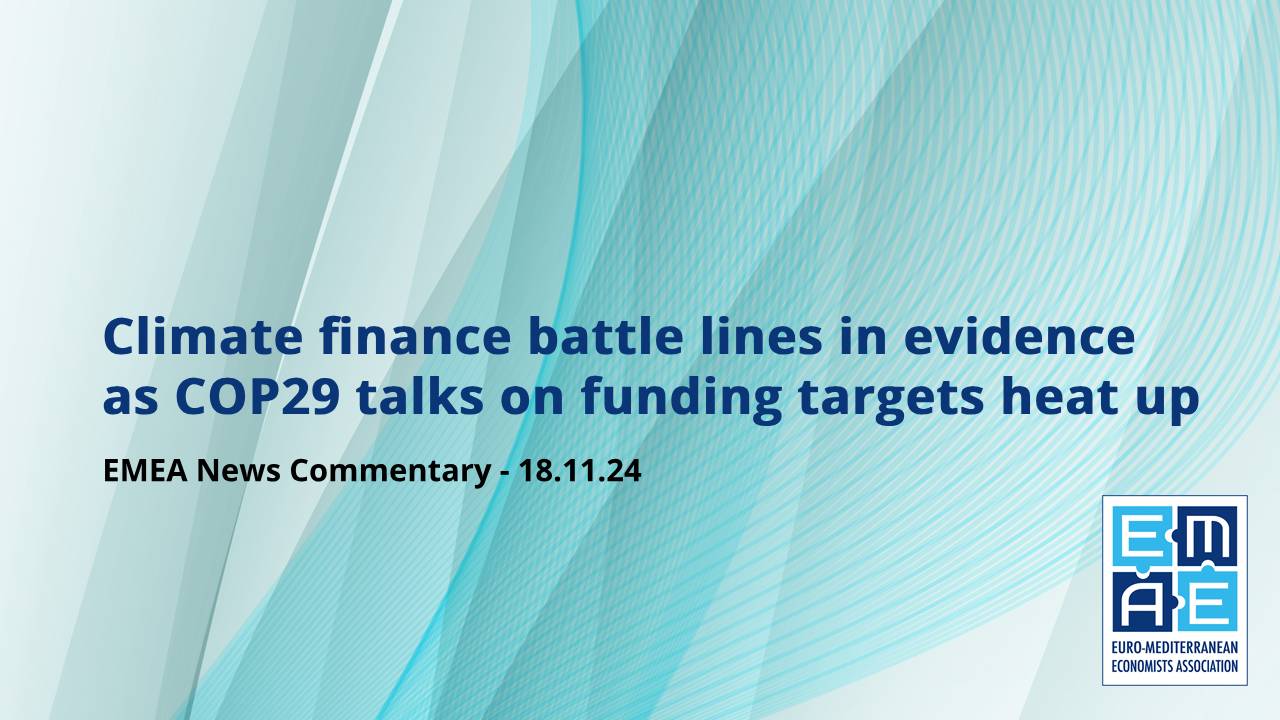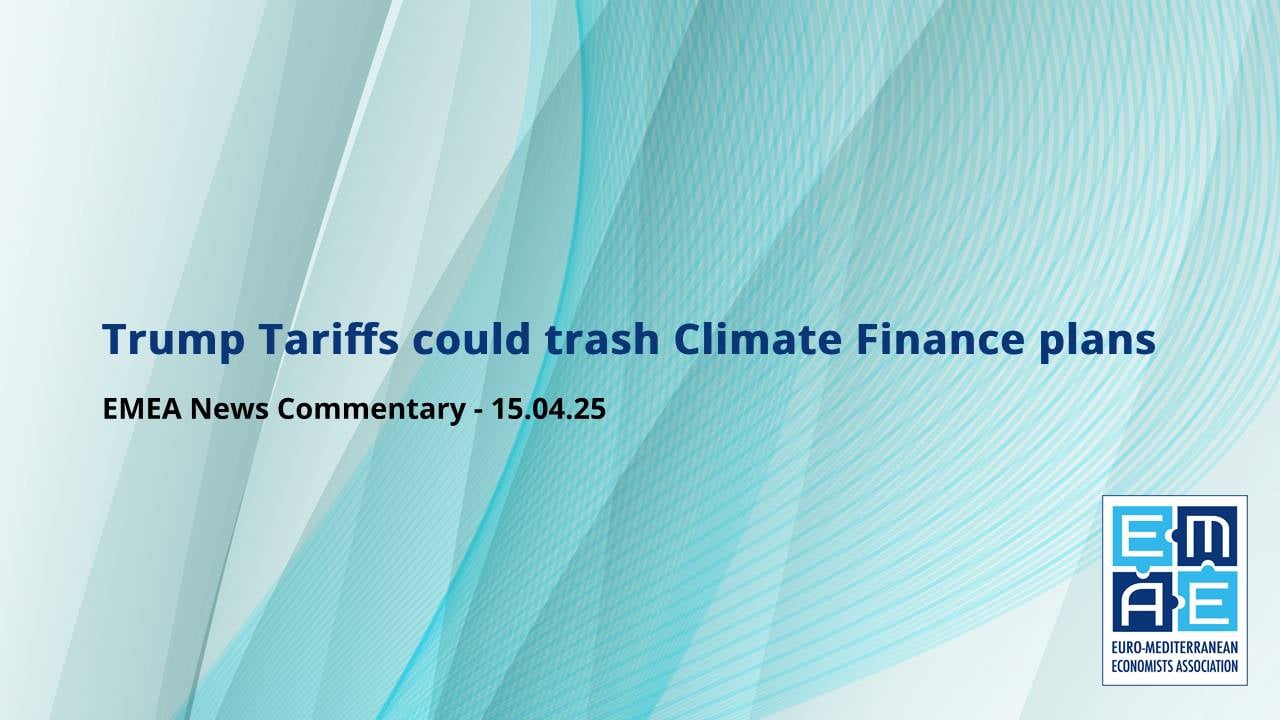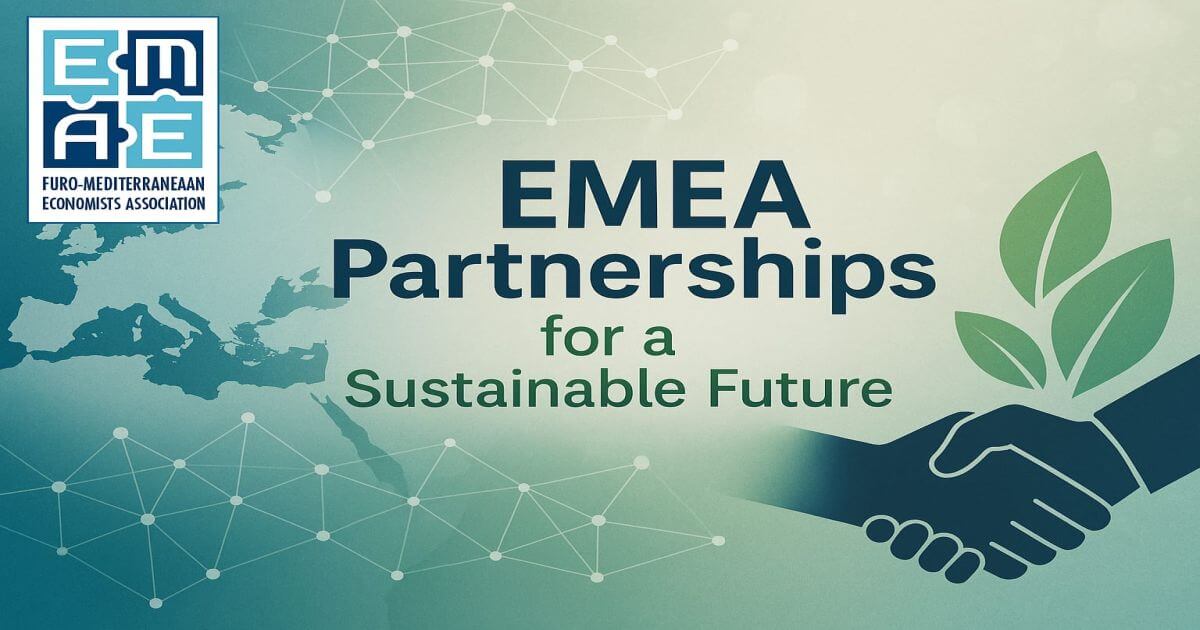The COP29 Summit has been billed as the toughest climate talks in almost a decade – with ministers and negotiators from nearly 200 countries facing up to the task of agreeing new financing targets, to tackle climate change.
The objective is to replace the target, first agreed 15 years ago, requiring developed nations to pay $100 bn annually by 2020 to fund climate financing for poorer countries. According to the OECD, this target was reached two years late.
The new replacement target — the New Collective Quantified Goal (NCQG) – is seen as crucial if increases in global temperatures are to be kept within a 1.5˚C ceiling, as laid out in the 2015 Paris accord.
The FT reports that the 1.5˚C level will enable countries to successfully make the transition towards the green economy and protect themselves against climate change impacts.
It sounds good in principle but, as the paper highlights, huge divisions and clashes have emerged over who pays, how much they pay and the structure of any emerging deal.
Under greatest threat
“It is going to be the most challenging negotiations since Paris, because it is about money,” predicted Eamon Ryan, Ireland’s environment and climate minister.
And Michai Robertson, lead negotiator on climate finance for the Alliance of Small Island States (Aosis), went so far as to say that the Paris Agreement was now under its greatest ever threat.
In the run-up to COP29, the UN Environment Programme warned that, without rapid action, the planet is heading towards a “catastrophic” temperature rise, hitting over 3˚C above pre-industrial levels.
This has prompted many developing nations to call for financial support totalling at least $1tn per year – ten times the 2022 figure achieved in payments. It is their belief that developed nations have created the climate change impacts being felt in their countries and that they shouldn’t be expected to shoulder the debt burden.
For their part, developed countries, still coming to terms with the financial pressures arising from the pandemic and soaring energy costs, don’t want to commit huge grants to support the third world.
Richer nations are advocating an expansion and reclassification of the so-called donor base so that it includes the likes of Saudi Arabia, the United Arab Emirates and China who, until now, haven’t been considered developing nations and are not included.
Depending on the metrics used, this expansion could, however, end up snaring “some vulnerable small islands” with China avoiding any new payment structure.
Layered financial goal
It’s being reported that the EU wants a “layered” finance goal. This would entail a core segment of public finance being shored up by private investments. Meanwhile, the Arab Group of countries are calling for a $1.1tn per year target between 2025 and 2029, with $441bn emanating from public finance “to help drive private investments.”
A report from the Energy Transitions Commission (ETC) think-tank has called for a range of climate financing options. These would include “capital investments averaging about $3tn a year until 2050, to create green energy systems.” These would primarily be financed by private institutions, with a certain amount of multilateral development bank (MDB) support.
But a further $950bn — either via rich country grants, domestic resources or MDB finance – will be needed to support three key areas, the ETC report added, namely: emissions in specific areas not generating returns, e.g., the early closure of coal plants; coastal defence investments; and dealing with loss and damage resulting from climate change.
Meanwhile, a 2022 report by the Grantham Institute said the costs of covering loss and damage might reach $200bn-$400bn a year by 2030 throughout middle and low-income countries.
Aosis negotiator Robertson said the primary focus at the Azerbaijan talks should be on “provision finance”, involving grants and concessional finance – as opposed to private funding.
Ali Mohamed, Kenya’s special envoy on climate and chair of the African Group of Negotiators on Climate Change (AGN), warned of a worsening debt situation for African countries, if the new goals were incorrectly structured. The continent was “bearing the brunt of climate shocks”, he said and “shouldering an unsustainable debt burden that is hindering the ability of African countries to achieve their climate and development goals.”
The FT reported that the AGN are pushing for funding of at least $1.3tn a year “to meet their climate targets and prepare for extreme weather events.” But most negotiators were pessimistic that this would be achieved, the FT said.
With Donald Trump’s election win potentially acting as a precursor for “fossil fuel-producing countries to derail the talks,” Azerbaijan’s lead negotiator, Yalchin Rafiyev, said it was more likely that hundreds of billions in finance would be mobilised – rather than the trillions that were needed.





